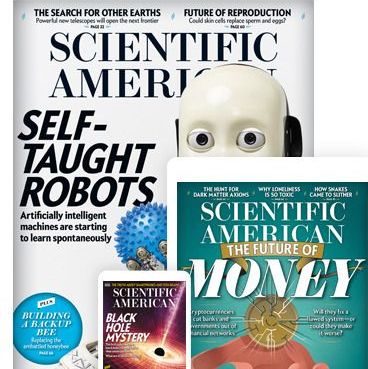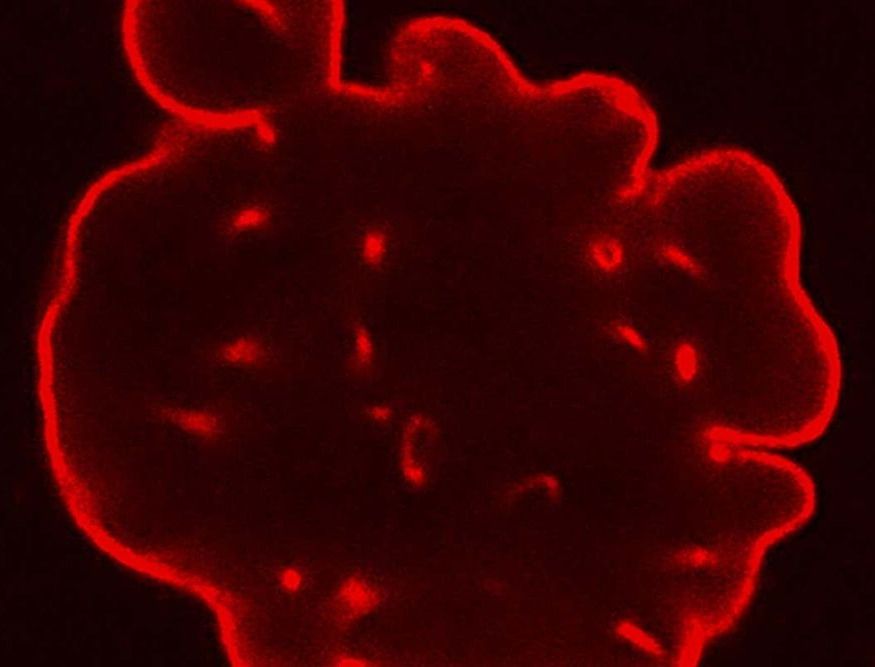Welcome to the Siim Land Podcast I’m your host Siim Land and our guest today is Liz Parish. Liz is the founder and CEO of BioViva. Which is a company committed to extending human lifespan using techniques such as gene and cell technologies. Liz Parrish became the first person worldwide to take dual gene therapies for treating aging.
Category: life extension – Page 389

Roadmap To End Aging — Understand The Hallmarks To Change Your Direction
It can be done. And it can be done sooner than many realise…even within YOUR lifetime. Imagine… Reaching triple digits with the health, fitness and body of an athletic 30 year old… It is entirely within reach now, it may be even less than a decade away. All we need to do is repair the damage that living and our metabolism create, it is slowly accumulating, which is why it takes 7 or 8 decades to rear its ugly head in most people, so one treatment should keep things under control for many years, and by then science will have advanced immeasurably, improving the treatments to whole new levels… Then you can dream of reaching 4 digits…then 5…then 6… BUT You need to stay in good enough shape to last long enough to see the treatments perfected and available. So watch your diet, your mental and physical health, your weight, and look to use occasional fasting, and time restricted eating, along with saunas and cold showers (or any hot/cold therapy), etc., to keep yourself at your optimum until that days arrives. If you want to know more, then this video breaks it down into even more detail. Have a great day and enjoy your journey into the future…
In a roadmap to end aging — understand the hallmarks to change your direction.
Getting old, grey hair, wrinkles, less strength, fragile bones, slower healing… And these are just the visible obvious factors, a slow continual decline towards your final grave. But if you know what is at fault, you can start to make lifestyle changes to alter their trajectory. Watch this video on Stress to find out more about what you can do and why it works https://youtu.be/s17UP_Ia4pQ And we do not only know what is happening, we also have some very good ideas of how to reverse, or at least, slow their decline whilst science works on real solutions. So, this will show you what the problems are, and then we shall start looking at what YOU can do to turn back the clock. With an aging population the benefits of more living their extended years in good health and able to lead whatever lifestyle they desire, is taking on ever more importance. Once you understand the mechanisms and follow the processes you will be able to build a better lifestyle aimed at a long and enjoyable existence. What are you actively doing to extend your healthspan?
And these are just the visible obvious factors, a slow continual decline towards your final grave.
But if you know what is at fault, you can start to make lifestyle changes to alter their trajectory.
Watch this video on Stress to find out more about what you can do and why it works.

Parabiosis: the Dilution Solution?
Summary: Scientists have long marveled at the rejuvenating effects of heterochronic parabiosis. When you mix the blood of a young mouse and an old mouse by joining their circulatory systems, the older animal recovers some features of youth, while the young animal becomes functionally older. While many have assumed that these effects were driven by the infusion of pro-youth factors from the young parabiont into the older one, an alternative “Dilution Solution” hypothesis is possible: that the young blood is instead diluting pro-aging factors from the old animal’s blood, as well as allowing the young animal’s livers and kidneys to filter out metabolic toxins through the young animals’ livers and kidneys.
In heterochronic parabiosis, joining the circulatory systems of young and old mice causes the older animal to recover some features of youth. The effect has been widely assumed to be driven by pro-youth factors in younger blood, but an alternative hypothesis is possible: that the procedure is instead diluting pro-aging factors in the older partner.

Researchers identify promising model for studying human aging
Aging research fans might like.
“In their work, Hamiliton’s team found that the Dunkin Hartley guinea pig was a good candidate for a muscle aging model due to the animal’s tendency to develop osteoarthritis (OA) at a young age.”
There are many components to aging, both mental and physical. When it comes to the infrastructure of the human body—the musculoskeletal system that includes muscles, bones, tendons and cartilage—age-associated decline is inevitable, and the rate of that decline increases the older we get. The loss of muscle function—and often muscle mass—is scientifically known as sarcopenia or dynapenia.
For adults in their 40s, sarcopenia is hardly noticeable—about 3% muscle mass is lost each decade. For those aged 65 years and older, however, muscle decline can become much more rapid, with an average loss of 1% muscle mass each year. More importantly, sarcopenia is also marked by a decrease in strength, impaired gait, reduced physical activity, or difficulty completing everyday tasks.
The proportion of older adults aged 65+ is projected to more than double by the year 2060, driving research into the process of musculoskeletal decline. Researchers at Colorado State University’s Columbine Health Systems Center for Healthy Aging believe they have found an animal model that will help them better understand it and find ways to curtail the symptoms.
Aubrey de Grey Longevity Q&A — The last 25 years, SENS, Longevity Escape Velocity, & More
Annotated!
Aubrey David Nicholas Jasper de Grey is an English author and biomedical gerontologist. He is the Chief Science Officer of the SENS Research Foundation and VP of New Technology Discovery at AgeX Therapeutics.
Feel free to ask any related questions that you want Aubrey to try and answer!
Futurist Foundation is a non-profit organization with the goal to connect futurists and promote crowd-sourced projects in science, technology, engineering, mathematics & design.
Donate to Futurist Foundation — https://opencollective.com/future.
Donate to SENS — https://www.sens.org/get-involved/donate/
Discord: https://discord.gg/u3JM2cu.
Website: http://thefuturistfoundation.com.
Our Other Links: https://linktr.ee/futuristfoundation.
0:00 Introduction.

Scientists Discover a Way to Control the Immune System’s “Natural Killer” Cells With “Invisible” Stem Cells
UC San Francisco scientists have discovered a new way to control the immune system’s “natural killer” (NK) cells, a finding with implications for novel cell therapies and tissue implants that can evade immune rejection. The findings could also be used to enhance the ability of cancer immunotherapies to detect and destroy lurking tumors.
The study, published today (January 82021) in the Journal of Experimental Medicine, addresses a major challenge for the field of regenerative medicine, said lead author Tobias Deuse, MD, the Julien I.E. Hoffman, MD, Endowed Chair in Cardiac Surgery in the UCSF Department of Surgery.
“As a cardiac surgeon, I would love to put myself out of business by being able to implant healthy cardiac cells to repair heart disease,” said Deuse, who is interim chair and director of minimally invasive cardiac surgery in the Division of Adult Cardiothoracic Surgery. “And there are tremendous hopes to one day have the ability to implant insulin-producing cells in patients with diabetes or to inject cancer patients with immune cells engineered to seek and destroy tumors. The major obstacle is how to do this in a way that avoids immediate rejection by the immune system.”
Scientists have restored youth to aging eyes in mice
Aging is, at least for now, inevitable, and our eyes are not immune to those changes. Vision loss is, in fact, one of the top 10 causes of disability in the US., however, shows that this might be reversible in the future.
A large team of geneticists, ophthalmologists, and other scientists used a group of molecules called Yamanaka factors to turn cells in the eyes of mature mice back to a youthful state. This reversed the damage done by aging, and the cells were then able to regenerate, connect back to the brain, and vision was restored in both models of normal aging and glaucoma.
Yamanaka factors are nothing new in neuroscience. They are named after the after Shinya Yamanaka led research using those factors to convert mature adult cells back to stem cells, kickstarting the field of induced pluripotent stem cells — cells reprogrammed with the ability to generate other types of cells.

Immortal Line of Cloned Mice Created
Watch out, George Lucas, there’s a new attack of the clones, and these ones are furry.
Japanese researchers have created a potentially endless line of mice cloned from other cloned mice. They used the same technique that created Dolly the sheep to produce 581 mice from an original donor mouse through 25 rounds of cloning, the scientists report in the March 7 issue of the journal Cell Stem Cell.
“This technique could be very useful for the large-scale production of superior-quality animals, for farming or conservation purposes,” study leader Teruhiko Wakayama of the RIKEN Center for Developmental Biology in Kobe, Japan, said in a statement.
